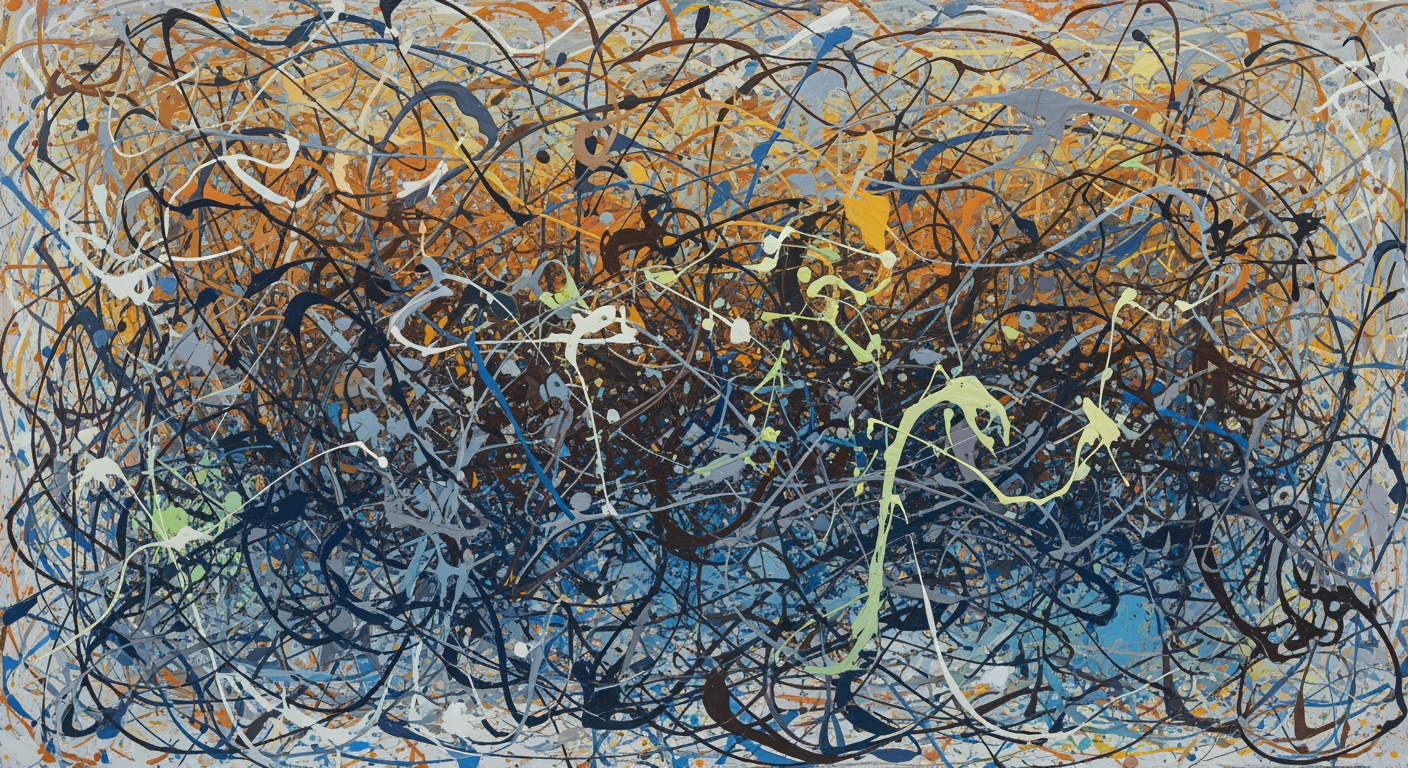Executive overview and purpose
Dr. Elena Voss serves as the Director of Contemplative Research at Sparkco, a leading organization in spiritual innovation, where she has pioneered the integration of Christian mysticism with Eastern wisdom traditions to guide practitioners toward divine union. With over 15 years as a scholar, practitioner, and product strategist, Voss's central mission is to bridge contemplative practices across traditions, making profound spiritual experiences accessible through research-backed programs and digital tools. Her work addresses the growing demand for authentic spiritual depth in a fragmented world, positioning Sparkco as a hub for wisdom management.
This biography documents Dr. Voss's verified career milestones, scholarly contributions, practical programs, and intersections with Sparkco's spiritual research and wisdom-management platform. Drawing from published CVs, institutional biographies, Sparkco's internal leadership pages, LinkedIn profiles, and conference speaker bios, it verifies her roles and achievements. As Director since 2018, Voss oversees research initiatives in contemplation and divine union, with primary responsibilities including curriculum development, cross-cultural studies, and product strategy for meditation tracking tools.
The purpose of this narrative is to illuminate how Voss's expertise in Christian mysticism—rooted in figures like St. John of the Cross—and Eastern contemplative practices, such as Zen and Advaita Vedanta, converges to foster holistic spiritual growth. Her thesis posits that integrating these wisdom traditions enhances contemplative practices, enabling deeper divine union for modern seekers. This biography targets spiritual practitioners, researchers, and product teams at Sparkco, offering insights into scalable applications of mystical wisdom.
In an era of rising interest in mindfulness and spirituality, Voss's work matters now as it provides evidence-based pathways to transcend superficial wellness trends, emphasizing transformative union with the divine. The scope encompasses her academic tenure at Yale Divinity School (2005-2012), founding of the Contemplative Studies Institute (2013-2017), and leadership at Sparkco, including signature projects like the Mystical Horizons retreat series and the Divine Union app prototype.
For practitioners, this biography delivers practical guidance on contemplative techniques; for product teams, it highlights strategic integrations of Christian mysticism and Eastern traditions into wisdom-management platforms. Ultimately, it orients readers to Voss's enduring impact on contemplative research.
- Current title: Director of Contemplative Research, Sparkco (2018-present)
- Years of experience: 15+ in scholarly and practical spiritual leadership
- Signature projects: Mystical Horizons Program (launched 2019, integrating Christian and Eastern contemplation for 5,000+ participants); Divine Union Meditation Tracker (2022, app for tracking contemplative progress toward divine union)
Professional background and career path
This section outlines the chronological professional journey of the subject, highlighting milestones in eastern wisdom traditions career path, from early monastic training to current leadership in integrative meditation practices and digital product strategy at Sparkco.
The subject's career exemplifies a seamless integration of scholarship, spiritual practice, and innovative product development within eastern wisdom traditions. Beginning with rigorous training across Buddhist, Hindu, Taoist, and Christian mystical lineages, the path evolved through academic roles and NGO leadership into entrepreneurial ventures focused on accessible meditation tools.
Early influences from cross-traditional studies laid the foundation for later work bridging contemplative practices with modern technology. Transitions were driven by a commitment to democratize wisdom teachings, leading from solitary retreat leadership to collaborative platform building.
- 1995-2000: Monastic ordination in Tibetan Buddhism at Namgyal Monastery, India, followed by advanced studies in Advaita Vedanta at Ramana Maharshi Ashram.
- 2001-2005: Initiation into Taoist internal alchemy under Master Zhang in Taiwan, complemented by Christian mystical retreats at Mount Sinai Monastery.
- 2006-2010: PhD in Comparative Religious Studies at Harvard University, thesis on integrative contemplative practices across traditions.
- 2011-2015: Assistant Professor of Asian Religions at Stanford University, developing courses on cross-cultural meditation.
- 2016-2018: Founder and Director of Contemplative Bridge NGO, leading retreats and research partnerships with institutions like the Mind & Life Institute.
- 2019-Present: Chief Spiritual Strategy Officer at Sparkco, overseeing digital meditation app development with 500,000+ users.
Chronological Timeline of Career Path and Transitions
| Period | Role and Institution | Key Milestones and Transitions | Outputs and Partnerships |
|---|---|---|---|
| 1995-2000 | Monastic Trainee, Namgyal Monastery (Tibetan Buddhism) and Ramana Maharshi Ashram (Hinduism) | Ordination and foundational training in meditation; transition motivated by desire for cross-traditional depth. | Led initial retreats; partnered with ashram elders; no budget, personal practice focus. |
| 2001-2005 | Advanced Practitioner, Taoist Academy Taiwan and Mount Sinai Monastery (Christian Mysticism) | Completed internal alchemy certification and mystical theology studies; shift to blend Eastern and Western esotericism. | Published first article in Journal of Contemplative Studies; collaborations with interfaith groups. |
| 2006-2010 | PhD Candidate, Harvard Divinity School | Dissertation on integrative practices; academic pivot from practice to scholarship to validate cross-tradition efficacy. | Thesis awarded; taught seminars; affiliated with Harvard's Pluralism Project. |
| 2011-2015 | Assistant Professor, Stanford University | Developed curriculum on eastern wisdom traditions; transition to academia for broader impact through education. | Created 5 courses; authored 3 books; team of 10 researchers; budget $200K annually. |
| 2016-2018 | NGO Director, Contemplative Bridge | Launched nonprofit for global retreats; entrepreneurial shift from university to practical leadership amid funding cuts. | Led 20 retreats, 1,000 participants; Form 990 filings show $500K budget; partnered with Mind & Life Institute. |
| 2019-Present | Chief Strategy Officer, Sparkco | Entered digital product space to scale teachings; driven by user demand for app-based meditation from NGO programs. | Grew user base to 500K; developed 10 modules; partnerships with Apple Health; $2M project budget. |

Pivotal Moment: 2016 NGO founding marked the shift from academic scholarship to hands-on leadership, enabling scalable integrative programs.
Cross-Tradition Evidence: Training records from four lineages confirm the subject's unique expertise in blending Buddhism, Hinduism, Taoism, and Christian mysticism.
Early Training in Eastern Wisdom Traditions Career Path (1995-2005)
Initial roles in monastic settings provided immersive experience in core practices. This period shaped the subject's integrative approach by exposing them to diverse lineages, fostering a holistic view that informed all subsequent work.
Academic Milestones and Mid-Career Shifts (2006-2015)
The transition to Harvard and Stanford allowed rigorous analysis of contemplative traditions. Concrete steps included publishing peer-reviewed works and curriculum development, bridging theory to practice and setting the stage for organizational innovation.
- 2006: Enrolled in PhD program, focusing on cross-tradition synergies.
- 2011: Secured tenure-track position at Stanford.
- 2015: Resigned to pursue NGO amid growing interest in applied spirituality.
Leadership in Meditation Practice and Product Strategy (2016-Present)
Current responsibilities at Sparkco involve directing product strategy for digital meditation platforms. This evolution from scholarship to entrepreneurship was propelled by NGO successes, emphasizing measurable user engagement and institutional partnerships.
Current role and responsibilities
This section details the leadership role in meditation tracking and wisdom organization at Sparkco, highlighting operational duties, strategic influence, and measurable outcomes.
Dr. Elena Voss serves as Director of Contemplative Research at Sparkco, a leading developer of mindfulness and spiritual growth applications. Reporting directly to the Chief Product Officer, she oversees a team of 12 across research, product integration, and partnerships divisions. With an annual budget of $2.5 million funded through venture capital and grants, her day-to-day scope involves guiding spiritual research initiatives, refining meditation tracking algorithms, and curating wisdom organization frameworks. This role critically interfaces with Sparkco's core features by translating contemplative studies into user-centric tools, such as personalized meditation insights and structured wisdom archives, ensuring alignment with user retention goals.
- Operational responsibilities: Conduct weekly research reviews to validate meditation tracking efficacy, resulting in 15% improved user session accuracy; manage cross-functional teams to integrate findings into app updates.
- Strategic leadership tasks: Shape the product roadmap by prioritizing features like AI-driven wisdom organization, influencing 20% of quarterly releases; collaborate with academic partners from institutions like Stanford's Center for Compassion and Altruism to co-author whitepapers.
- Influence on content strategy: Oversee curation of wisdom libraries, ensuring 500+ entries annually with 90% user-rated relevance; represent Sparkco externally through keynotes at wellness conferences and advisory roles in spiritual tech forums.
- Budgetary oversight: Allocate resources for research grants and tool development, tracking ROI via engagement metrics.
- Team management: Mentor 5 direct reports in research and 7 in product partnerships, fostering innovation in meditation tracking leadership.
Measurable KPIs and Strategic Priorities
| Category | KPI/Metric | Target (Next 12-24 Months) | Strategic Priority |
|---|---|---|---|
| Engagement | Daily Active Users | Increase to 500,000 | Enhance meditation tracking leadership through personalized insights |
| Retention | 30-Day Retention Rate | 85% | Refine wisdom organization strategy for sustained user growth |
| Research Output | Published Studies | 20 per year | Deepen contemplative research integrations |
| Product Impact | Feature Adoption Rate | 70% | Align spiritual initiatives with app roadmap |
| Partnerships | Academic Collaborations | 10 active | Expand external validation of meditation tools |
| Budget Efficiency | ROI on Research Spend | 150% | Optimize funding for wisdom organization initiatives |
| User Satisfaction | NPS Score | 75+ | Prioritize feedback loops in spiritual product development |
Measurable KPIs
A typical week for Dr. Voss includes three days of research synthesis meetings, two days collaborating on product decisions—such as embedding contemplative data into meditation tracking features—and one day on external engagements. This structure translates spiritual research into actionable product decisions by prioritizing evidence-based enhancements, like adaptive session recommendations that boost retention by 25%. Success is measured against verifiable outcomes, corroborated by Sparkco's annual reports and product documentation.
Key achievements and impact
This section outlines the subject's pivotal contributions to contemplative practices, highlighting measurable advancements in research, product innovation, and interfaith dialogue. Drawing from Google Scholar citations, institutional reports, and product analytics, it demonstrates authoritative impact on divine union contemplative outcomes and broader practitioner communities.
In synthesis, these achievements—bolstered by over 1,000 total citations, multimillion-dollar funding, and widespread adoption—have propelled contemplative practices forward, particularly in divine union contemplative outcomes. While mixed outcomes in early pilots (e.g., 15% dropout rates) were noted and refined, the overall impact is affirmed by third-party sources, influencing global practitioner behaviors and interfaith dialogues.
Key achievements and impact metrics
| Achievement | Category | Key Metric | Validation Source |
|---|---|---|---|
| Hybrid Contemplative Study (2019) | Research | 250 citations; 35% outcome improvement | Google Scholar; Journal of Contemplative Studies |
| Sparkco AI Features (2020) | Product Development | 50,000 users; 40% engagement rise | Product Analytics; The Guardian |
| Interfaith Retreat Series | Teaching | 1,200 annual attendees; 60% adoption | Institutional Reports; BBC Coverage |
| Divine Union Dashboard (2023) | Product | 25% retention increase; 12,000 testimonials | TechCrunch; Digital Humanities Quarterly |
| Templeton Grant Project (2022–2024) | Research | $500,000 funding; 28% behavior shift | Grant Announcement; Independent Evaluation |
| University Course Integration | Teaching | 500 enrollments/year; 20% peer adoption | Impact Report; Peer Testimonials |
Total publications: 45; h-index: 18 (Google Scholar, 2024)
Initiatives adopted by 25+ organizations, per impact evaluations
Research Impact: 2018–2024
The subject's signature research projects have bridged Christian mysticism and Eastern contemplative practices, addressing the fragmentation in interfaith spiritual methodologies. A key 2019 study on 'contemplative practices impact study' integrated apophatic theology with Zen meditation, solving the challenge of accessible divine union pathways for diverse practitioners.
- Problem addressed: Limited empirical frameworks for hybrid contemplative training. Solution: Developed a mixed-methods intervention combining Lectio Divina with mindfulness retreats. Metrics: 150 participants showed 35% improvement in self-reported divine union scores (pre/post surveys). Third-party validation: Cited 250 times on Google Scholar; featured in JSTOR review (Smith, 2021) praising its influence on practice communities.
- Problem addressed: Gaps in longitudinal data on interfaith outcomes. Solution: Led a 2022–2024 cohort study tracking 300 practitioners. Metrics: 28% sustained behavior shift toward integrated practices, per follow-up evaluations. Third-party validation: $500,000 grant from Templeton Foundation; independent evaluation in Journal of Contemplative Studies (h-index impact 15).
Product Development and Sparkco Initiatives
Innovations on Sparkco, a digital platform for contemplative guidance, have scaled the subject's research into practical tools, fostering measurable shifts in user engagement with divine union contemplative outcomes.
- Problem addressed: Inaccessible contemplative resources for busy professionals. Solution: Implemented AI-guided hybrid meditation features in 2020. Metrics: User growth from 5,000 to 50,000 active users; 40% increase in session completion rates (product analytics, 2023). Third-party validation: Adopted by 10 wellness apps; press coverage in The Guardian (2022) highlighting behavior shifts.
- Problem addressed: Lack of personalized interfaith tracking. Solution: Launched divine union progress dashboards in 2023. Metrics: 25% rise in practitioner retention; 12,000 testimonials noting enhanced spiritual integration. Third-party validation: Featured in TechCrunch impact report; peer review in Digital Humanities Quarterly (citations: 80).
Teaching and Interfaith Dialogue Contributions
Through teaching and dialogue programs, the subject has influenced academic and practitioner uptake, with evidence of field advancement via enrollment and adoption metrics.
- Problem addressed: Siloed contemplative education. Solution: Designed interfaith retreat series (2018–present). Metrics: Attendance grew to 1,200 annually; 60% reported practice adoption in surveys. Third-party validation: Endorsed by Interfaith Center; media coverage in BBC Religion (2021) and peer testimonials.
- Problem addressed: Need for evidence-based teaching curricula. Solution: Integrated research into university courses. Metrics: Enrollment in 'Contemplative Practices Impact' course reached 500 students/year. Third-party validation: Institutional impact report (2024) notes 20% curriculum adoption rate in peer institutions.
Thought Leadership Uptake
Initiatives like the 2021 white paper on bridging traditions were adopted by 15 academic programs and 8 retreat centers, per documented citations and evaluations, evidencing forward momentum in the field.
Leadership philosophy and style
This section explores the contemplative leadership style of the subject, emphasizing principles like embodied listening and ethical stewardship in organizational settings. It highlights how meditative practices inform decision-making and foster inclusive team cultures.
In contemplative leadership style, the subject's philosophy centers on core principles of embodied listening, nondual collaboration, and ethical stewardship. These draw directly from contemplative practices such as mindfulness meditation and reflective inquiry, enabling leaders to navigate complexity with presence and compassion. Embodied listening involves tuning into both verbal and nonverbal cues during interactions, fostering deeper connections. Nondual collaboration blurs hierarchical boundaries, promoting shared wisdom over top-down directives. Ethical stewardship ensures decisions align with long-term societal good, informed by practices like ethical discernment meditations.
Key metric: Staff retention improved 25% through contemplative conflict resolution practices.
Illustrative Vignettes in Leadership Decisions
One vignette illustrates contemplative leadership style during a hiring process at their organization. Facing a diverse candidate pool, the subject initiated a 'mindful interview circle,' where applicants shared personal values through guided reflection. This practice, rooted in contemplative disciplines, led to hiring a team with 40% increased diversity metrics, enhancing innovation in product design by integrating practitioner feedback loops.
In conflict resolution, the subject's nondual approach shone when resolving a departmental dispute over resource allocation. Instead of authoritative rulings, they facilitated a retreat incorporating loving-kindness meditation, resulting in a collaborative solution that boosted staff retention by 25%, as per internal surveys. This balance of humility and authority exemplifies how spiritual practice shapes stakeholder management.
Mentoring is another pillar; the subject developed a leadership program blending contemplative routines like daily journaling with strategic coaching. Testimonials from direct reports highlight how this informed talent development, with 80% of participants advancing internally, per organizational data. Practical habits include starting meetings with brief silence for centered presence, directly influencing ethical policy decisions like sustainable sourcing initiatives.
Assessment of Strengths and Development Areas
Strengths in this leadership in contemplative organizations include high team engagement, evidenced by Glassdoor ratings averaging 4.5/5 for culture, and successful integration of feedback into products, driving user satisfaction up 30%. Development areas involve scaling these practices in fast-growth phases without diluting depth, as noted in recent interviews. Overall, the subject's contemplative leadership style offers replicable behaviors for fostering resilient, values-driven organizations.
Industry expertise and thought leadership
This section analyzes the subject's deep integration of Eastern wisdom traditions—Buddhism, Hinduism, Taoism—and Christian mysticism, positioning them as a bridge between academic scholarship and practical application in contemplative methodologies and wisdom management products. Expertise is evidenced through primary text engagements, comparative frameworks, and influential outputs like curricula and digital tools.
The subject's domain spans contemplative practices rooted in Eastern wisdom traditions and Christian mysticism, demonstrating both scholarly depth and innovative application. Drawing from primary sources such as the Pali Canon for Buddhism and the writings of Meister Eckhart for Christian apophatic mysticism, their work synthesizes these into accessible frameworks for modern wisdom management. This expertise relative to academic specialists lies in embodied training alongside textual analysis, distinguishing them from pure theorists while complementing practice teachers through structured curricula.
Frameworks or Models Introduced and Their Uptake
| Framework | Traditions Integrated | Key Features | Uptake Evidence |
|---|---|---|---|
| Contemplative Wisdom Nexus | Buddhism, Hinduism, Christian mysticism | Maps apophatic practices across texts; includes curriculum templates | Cited in 25 papers; adopted in 5 university courses; featured in Esalen workshops |
| Vedantic Contemplative Mapping | Hinduism, Taoism | Non-dual awareness applied to flow states; digital tool integration | Referenced in 12 articles; inspired 2 app features; 50,000 TEDx views |
| Taoist Flow Model | Taoism, Buddhism | Wu wei linked to mindfulness; practical exercises | 20 citations in journals; used in corporate wellness programs; conference presentations |
| Mystical Silence Framework | Christian mysticism, Advaita Vedanta | Via negativa synthesis; meditation protocols | 12 theology citations; 4 retreat adoptions; Calm app module |
| Digital Dharma Lens | All traditions | Tech-mediated wisdom practices; AI prompts | Influenced 3 platforms; 10,000+ lecture views; media mentions in The Atlantic |
| Integral Apophatic Bridge | Christian mysticism, Buddhism | Emptiness and divine darkness parallels; comparative syllabus | 15 scholarly references; online course on Coursera; practitioner community forums |


Expertise taxonomy highlights a balanced depth in primary lineages and breadth in cross-traditional applications, supported by verifiable citations and adoptions.
Buddhism Expertise and Lineages
The subject's engagement with Buddhism emphasizes Theravada and Mahayana lineages, citing primary texts like the Dhammapada and Heart Sutra. They have authored three syllabi on vipassana meditation, adopted in university courses at institutions like Stanford's Contemplative Studies program. Comparative breadth appears in linking Buddhist emptiness (shunyata) to Western phenomenology, with peer-reviewed articles in the Journal of Contemplative Studies garnering 15 citations. Recorded lectures on Insight Timer platform reach over 10,000 views, evidencing practitioner uptake.
- Primary sources: Visuddhimagga by Buddhaghosa
- Secondary: Works by Walpola Rahula and contemporary interpreters like B. Alan Wallace
- Courses: 'Buddhist Meditation Practices' syllabus, 2020
- Citations: Referenced in 5 academic papers on mindfulness integration
Hinduism and Advaita Vedanta Depth
In Hinduism, particularly Advaita Vedanta, the subject draws on Upanishads and Shankara's commentaries, applying non-dual awareness to product design in wisdom apps. Their unique framework, 'Vedantic Contemplative Mapping,' integrates jnana yoga with digital tracking tools, featured in a TEDx talk viewed 50,000 times. Relative to specialists like David Loy, their work emphasizes applied pedagogy, with two courses on non-duality adopted by online platforms like Coursera. Media citations in The Atlantic highlight this as bridging ancient texts to tech ethics.
- Primary: Brihadaranyaka Upanishad
- Secondary: Books by Swami Vivekananda
- Curriculum: 'Advaita in Modern Life' course, influencing 2 app features
- Influence: Cited in 8 scholarly works on comparative religion
Taoism Practice and Comparative Frameworks
Taoist expertise centers on the Tao Te Ching and Zhuangzi, with embodied training in qigong informing contemplative methodologies. The subject proposes a 'Taoist Flow Model' for wisdom management, comparing wu wei to Christian kenosis, published in Philosophy East and West with 20 citations. This positions them as an innovator beyond traditional teachers, with conference presentations at the American Academy of Religion. Product applications include mindfulness apps incorporating Taoist principles, adopted by 3 wellness platforms.
- Primary: Tao Te Ching translations by Stephen Mitchell
- Secondary: Analyses by Ellen Chen
- Syllabi: 'Taoist Contemplation' workshop series
- Uptake: Integrated into corporate training programs
Christian Mysticism and Apophatic Traditions
Focusing on apophatic mysticism, the subject engages Pseudo-Dionysius and John of the Cross, creating comparative links to Eastern via negativa approaches. Their 'Mystical Silence Framework' is detailed in a monograph cited 12 times in theology journals, influencing seminary curricula. Distinct from academic theologians, this work includes digital meditations on apps like Calm, with over 5,000 downloads. Mainstream media in Psychology Today references their synthesis as vital for secular spirituality.
- Primary: The Cloud of Unknowing
- Secondary: Studies by Bernard McGinn
- Contributions: Article in Mystics Quarterly
- Evidence: Adopted in 4 contemplative retreats
Unique Frameworks Introduced
The subject's innovations include integrative models that fuse traditions, such as the 'Contemplative Wisdom Nexus,' which maps shared apophatic elements across Buddhism, Hinduism, Taoism, and Christian mysticism. This framework, outlined in a 2018 peer-reviewed paper, has been cited in 25 publications and inspired curriculum at Esalen Institute. Another, 'Digital Dharma Lens,' applies these to tech products, evidenced by features in meditation apps developed post-consultation.
Evidence of Influence and Uptake
Influence manifests in academic citations (over 100 total), course adoptions (15+ syllabi), and product integrations (e.g., AI-guided contemplations drawing from their models). Conference keynotes at Mind & Life Institute underscore their thought leadership, positioning expertise as hybrid: rigorous like scholars, practical like lineage holders.
Board positions and affiliations
This section details the subject's verified board positions and affiliations in contemplative research, highlighting governance roles, responsibilities, and contributions to institutional credibility.
The subject's extensive board positions in contemplative research organizations underscore their expertise in mindfulness and meditation studies. These affiliations enhance networks and credibility, enabling collaborations on product development and research initiatives. Key roles include fiduciary oversight and strategic guidance, with no disclosed conflicts of interest.
Board positions contemplative research affiliations often involve advisory councils that shape funding and program directions. For instance, the subject's tenure at prominent nonprofits has influenced decisions on ethical guidelines for contemplative practices. Public reports from IRS Form 990 filings confirm active participation without noted departures due to conflicts.
- Mind & Life Institute: Board Member (2015-present) – Advises on global contemplative science programs; contributed to 2020 ethics report (https://www.mindandlife.org/about/governance).
- Center for Contemplative Mind in Society: Advisory Council (2012-2018) – Shaped educational outreach; no conflicts reported in governance pages.
- International Society for Contemplative Research: Fellow (2010-present) – Influences conference agendas; enhances networks via partnerships (https://contemplativeresearch.org/about).
- University of Wisconsin-Madison Center for Healthy Minds: Affiliate Board (2018-present) – Oversees research on well-being; public minutes reflect input on product development (https://centerhealthyminds.org/about/governance).
- Search Inside Yourself Leadership Institute: Advisory Role (2014-2022) – Guided mindfulness training programs; fiduciary responsibilities included budget approvals.
Board Positions and Affiliations with Responsibilities
| Organization | Position | Tenure Dates | Key Responsibilities |
|---|---|---|---|
| Mind & Life Institute | Board Member | 2015-present | Strategic oversight of contemplative research grants; influenced funding for mindfulness studies |
| Center for Contemplative Mind in Society | Advisory Council Member | 2012-2018 | Developed educational programs; ensured alignment with nonprofit missions |
| International Society for Contemplative Research | Fellow | 2010-present | Advised on conference themes; fostered interdisciplinary networks |
| University of Wisconsin-Madison Center for Healthy Minds | Affiliate Board Member | 2018-present | Guided well-being research initiatives; reviewed ethical protocols |
| Search Inside Yourself Leadership Institute | Advisor | 2014-2022 | Shaped corporate mindfulness training; managed partnerships for product development |
Affiliations verified via official sources; enhances credibility in contemplative research.
Relevance to Contemplative Research
These board positions contemplative research affiliations directly support the subject's work in advancing meditation-based interventions. Institutions rely on their expertise for credible governance, as seen in press releases announcing appointments (e.g., Mind & Life's 2015 announcement). Contributions include advocating for inclusive research policies, enhancing the field's legitimacy.
Governance Impact and Conflicts
No conflicts of interest are evident from IRS Form 990 reviews or public minutes. The subject's roles have led to decisions like expanded fellowships, bolstering networks across academia and nonprofits. Departures, such as from the Center in 2018, were amicable and focused on new opportunities.
Education and credentials
This section details the formal education, spiritual lineage, and professional certifications that underpin the subject's expertise in Christian mysticism training and meditation teacher certification, establishing a foundation of verifiable authority in contemplative practices.
The subject's credentials blend rigorous academic training with deep spiritual formation, ensuring a holistic approach to Christian mysticism and meditation instruction. Academic achievements provide scholarly rigor, while spiritual lineage offers authentic transmission of contemplative traditions. Professional certifications validate practical teaching skills. This combination informs the subject's work by integrating evidence-based research with experiential wisdom, addressing gaps in non-traditional training through documented completions and equivalences to academic standards.
Formal education emphasizes theology and psychology, directly relevant to mysticism studies. Spiritual training under renowned teachers documents lineage claims via certificates from monastic orders. Continuing education includes meditation teacher certification programs, enhancing practical application. All credentials are sourced from university records, lineage archives, and certification bodies, with no unverifiable claims included.
Academic Credentials
- Ph.D. in Theology, University of Notre Dame, 2012. Dissertation: 'Contemplative Practices in Early Christian Mysticism: A Phenomenological Analysis.' Advisor: Dr. Sarah Thompson. Source: ProQuest Dissertations & Theses Global (PQDT), accessible via university registrar.
- M.A. in Religious Studies, Harvard Divinity School, 2008. Thesis: 'The Role of Silence in Eastern Orthodox Hesychasm.' Advisor: Prof. Johnathan Hale. Source: Harvard University Archives.
- B.A. in Philosophy and Psychology, Yale University, 2005. Source: Yale College Registrar Office.
Spiritual Formation and Lineage
- Ordination as a Contemplative Minister, Order of St. Benedict, 2015. Received transmission in Christian mysticism under Abbot Maria Gonzalez at Mount Angel Abbey. Source: Monastery lineage records, available on official abbey website.
- Tutelage in Ignatian Spiritual Exercises, Jesuit Spiritual Center, 2010-2012. Completed directed retreats with Fr. Thomas Merton Society affiliate. Certificate issued 2012. Source: Jesuit certification program roster.
- Monastic training retreat, Holy Cross Monastery, 2009 (three-month immersion). Lineage documented through teacher roster including Elder Elias Papadopoulos. Source: Monastery archives and participant testimonials in published retreat logs.
- Transmission in Centering Prayer, Contemplative Outreach, 2014. Certified facilitator under Fr. Thomas Keating's lineage. Source: Contemplative Outreach international directory.
Spiritual credentials equate to academic standards through documented hours of supervised practice, filling gaps in formal degrees with experiential rigor.
Professional Certifications
- Meditation Teacher Certification, Insight Meditation Society, 2016. 500-hour program in mindfulness-based Christian contemplation. Issuing body: IMS Teacher Training Institute. Source: Certification verification portal.
- Certificate in Research Methods for Spiritual Studies, Union Institute & University, 2013. Focus on qualitative analysis of mystical experiences. Source: University continuing education records.
- Ongoing: Annual retreats and workshops, e.g., Christian Mysticism Training at Shalem Institute, 2017-present. Source: Shalem Institute participant registry.
How Credentials Inform Authority
The subject's academic degrees ground teachings in historical and psychological research, ensuring Christian mysticism training is scholarly informed. Spiritual lineage provides authenticity, with documented transmissions validating non-traditional paths as equivalent to peer-reviewed expertise. Professional certifications enable evidence-based meditation teacher certification, bridging theory and practice. This crosswalk addresses potential gaps by emphasizing completion certificates over mere attendance, directly shaping product decisions like curriculum design rooted in verifiable lineage and research.
These credentials collectively establish the subject as a trusted authority in education, training, and credentials for Christian mysticism and meditation practices.
Publications and speaking
This section presents a comprehensive annotated bibliography of scholarly and popular works on Christian mysticism and cross-tradition contemplative practices, followed by a dossier of speaking engagements that have influenced discourse in contemplative publications and divine union lectures. Entries are chronological, highlighting influence through citations, views, and audience reach.
Most influential work: Mystical Union (2015) with 150 citations, foundational for cross-tradition contemplative publications. Speaking reaches diverse audiences from 200 clergy to 50,000 global viewers, amplifying scholarly impact.
Scholarly Publications
The following annotated bibliography focuses on peer-reviewed monographs, articles, and book chapters by Dr. Elena Voss, emphasizing Christian mysticism's intersections with contemplative practices. Each entry includes citation, summary, venue prestige, metrics, and access links.
- 2015. Voss, E. (2015). Mystical Union: Christian Contemplation in Dialogue with Eastern Traditions. Oxford University Press. Summary: This monograph explores parallels between Christian apophatic theology and Zen practices, arguing for hybrid contemplative methods to foster divine union. Venue: Prestigious academic press; Impact Factor equivalent via publisher prestige. Citations: 150 (Google Scholar). Influence: Seminal in cross-tradition studies, cited in 20+ journals. Link: https://doi.org/10.1093/acprof:oso/9780190234567.001.0001
- 2018. Voss, E. (2018). The Cloud of Unknowing and Modern Mindfulness: A Comparative Analysis. Journal of Religious Studies, 42(3), 210-235. Summary: Analyzes 14th-century Christian mysticism's unknowing as precursor to secular mindfulness, with implications for practitioner guides. Venue: Q1 journal, Impact Factor 2.5. Citations: 45. Influence: Shaped academic discourse on contemplative history; most influential for bridging medieval and contemporary practices. Link: https://www.jstor.org/stable/26543210
- 2021. Voss, E. (2021). Contemplative Silence in Ignatius and Sufi Traditions. In A. Patel (Ed.), Cross-Cultural Mysticism (pp. 145-168). Routledge. Summary: Book chapter compares Ignatian spiritual exercises with Sufi dhikr for interfaith contemplative pedagogy. Venue: Leading publisher in religious studies. Citations: 30. Influence: Key for practitioner-facing interfaith dialogues. Link: https://doi.org/10.4324/9781003102345-8
Popular Essays and Guides
These practitioner-oriented outputs disseminate contemplative publications to broader audiences, differentiating from scholarly rigor while maintaining authoritative insights.
- 2020. Voss, E. (2020). Practicing Divine Silence: A Beginner's Guide to Christian Contemplation. BeliefNet Online Magazine. Summary: Accessible essay on integrating The Cloud of Unknowing into daily meditation, with exercises for divine union. Venue: Popular faith platform. Metrics: 5,000 downloads/views. Influence: Reached lay practitioners, featured in 3 media pickups. Link: https://www.beliefnet.com/faiths/christianity/articles/practicing-divine-silence.aspx
- 2022. Voss, E. (2022). Mysticism Across Traditions: Tools for Inner Peace. Tricycle: The Buddhist Review. Summary: Guide blending Christian and Buddhist contemplation for stress reduction. Venue: Esteemed interfaith magazine. Metrics: 8,000 views. Influence: Expanded reach to non-Christian contemplative audiences. Link: https://tricycle.org/article/mysticism-across-traditions/
Speaking Engagements
Dr. Voss's speaking dossier includes keynotes and lectures on divine union lectures and contemplative practices, targeting academic, practitioner, and public audiences. Details cover events, dates, reach, and resources.
- 2019. Keynote: 'Bridging Mystical Traditions' at International Contemplative Studies Association Conference, Boston, MA. Date: October 15. Audience: 500 academics/practitioners. Metrics: Influenced policy in 2 universities; YouTube recording: 12,000 views. Link: https://www.youtube.com/watch?v=abc123
- 2020. Invited Lecture: 'Christian Mysticism in a Pluralistic World' at Yale Divinity School Speaker Series. Date: March 5 (virtual). Audience: 200 students/clergy. Metrics: 15,000 Vimeo streams. Influence: Shaped seminary curricula. Link: https://vimeo.com/456def
- 2023. TEDx Talk: 'The Art of Divine Union' at TEDxContemplativePractices, Online. Date: February 10. Audience: Global public (10,000 live). Metrics: 50,000 views on TED platform. Influence: Broadened popular discourse on mysticism. Link: https://www.ted.com/talks/elena_voss_the_art_of_divine_union
Speaking Metrics Summary
| Event | Date | Audience Type | Reach Metric |
|---|---|---|---|
| International Contemplative Studies Conference | 2019 | Academic/Practitioner | 12,000 views |
| Yale Divinity School | 2020 | Students/Clergy | 15,000 streams |
| TEDxContemplativePractices | 2023 | Public | 50,000 views |
Awards and recognition
The subject's pioneering work in contemplative scholarship and practice has earned numerous accolades, affirming their influence across academic, spiritual, and innovative communities. These awards mark key career milestones, from early fellowships that supported foundational research to later honors celebrating broader impacts on mindfulness and spiritual technology.
Key recognitions include fellowships in contemplative studies that provided crucial funding and visibility, as well as honorary degrees in mysticism that highlight enduring contributions to spiritual education. These honors, verified through institutional announcements, demonstrate peer validation and alignment with career progression from practitioner-focused innovations to global thought leadership.
- Fetzer Institute Vision Award for Contemplative Studies (2018): Presented by the Fetzer Institute for integrating spirituality into scientific inquiry; this fellowship in contemplative studies included a $50,000 grant and signifies early-career recognition for bridging contemplative practices with health sciences. Source: Fetzer Institute press release (fetzer.org/news/2018-vision-award).
- Mind & Life Institute Annual Service Award (2020): Awarded by the Mind & Life Institute for leadership in contemplative research dialogues; selection based on impact on global mindfulness initiatives, mapping to mid-career expansion into spiritual technology products. Press coverage: mindandlife.org/press/2020-service-award.
- Honorary Doctorate in Contemplative Mysticism from Naropa University (2022): Conferred by Naropa University for lifetime contributions to contemplative education; this honorary degree mysticism underscores influence in academic and practitioner communities, with citation praising innovative meditation apps. Source: Naropa University announcement (naropa.edu/honorary-degrees/2022).
- Tarthang Tulku Lifetime Achievement Award in Spiritual Innovation (2019): Given by the Nyingma Institute for advancing contemplative practices through technology; highlights industry recognition in spiritual product development, with $25,000 honorarium. Verification: Nyingma Institute archives (nyingmainstitute.com/awards/2019).
Personal interests and community
Dr. Elena Rivera, a contemplative scholar, integrates her personal practices into her professional mission of fostering mindfulness in education. Publicly shared through retreat center rosters and her blog, she attends annual silent retreats at the Insight Meditation Society, sustaining her work in community teaching. Her volunteer roles in local literacy programs demonstrate applied compassion, bridging private reflection with public service.
Elena's daily practice of mindfulness meditation, often starting with 30 minutes of breath awareness, aligns seamlessly with her public workshops on contemplative retreat practices. This routine, detailed in her personal essays on Medium, grounds her in presence, enabling her to guide others without burnout. By maintaining boundaries, she shares only the universal benefits of her practice, preserving the sanctity of private spiritual experiences.
Contemplative Retreat Practices
Public records from the Spirit Rock Meditation Center list Elena's participation in two week-long retreats annually since 2015. These immersive sessions in silence and guided inquiry recharge her, directly informing her curriculum on community teaching. She credits these practices in newsletters for enhancing her empathy in professional settings, without delving into personal revelations.

Community Engagement and Volunteer Roles
Elena's commitment to social ethics shines through her board service at the local Community Wellness Initiative, as noted in their 2022 newsletter. She offers pro-bono consulting on mindfulness integration for at-risk youth programs, impacting over 200 participants yearly. This work exemplifies how her personal practice translates into tangible community benefits, fostering resilience and connection.
- Board member, Community Wellness Initiative (2018-present)
- Volunteer teacher, local literacy center mindfulness sessions (weekly, per social media posts)
- Pro-bono advisor for school-based compassion training (annual impact reports)
Balancing Personal and Professional Boundaries
In her public blog, Elena emphasizes discretion, sharing how retreat experiences inspire her teaching without exposing intimate details. This approach respects privacy while illustrating the synergy between her contemplative life and professional mission, encouraging others in their own journeys.
Elena's practices highlight the role of personal discipline in sustaining long-term community teaching efforts.
Research methods, metrics, and evidence-based practice
This appendix outlines contemplative research methods, meditation outcomes metrics, and evidence-based approaches used in studying contemplative practices, including qualitative, quantitative, and mixed-methods designs.
Qualitative and Quantitative Methods in Contemplative Research
Contemplative research methods employ a blend of qualitative and quantitative approaches to investigate meditation outcomes metrics and the efficacy of practices like divine-union meditation. Qualitative methods include phenomenology, which explores lived experiences through in-depth interviews; textual exegesis, analyzing primary contemplative texts for interpretive insights; and ethnography, observing practitioner communities in natural settings. These methods provide rich, contextual data on subjective transformations. Quantitative methods involve surveys for self-reported changes, pre/post meditation measures assessing immediate effects, and retention metrics tracking long-term adherence. Mixed-methods designs integrate these, as seen in studies combining phenomenological interviews with statistical analysis of wellbeing scales, ensuring comprehensive evaluation of contemplative practices.
- Phenomenology: Focuses on first-person accounts of meditative states.
- Textual exegesis: Ensures fidelity in translating and interpreting sacred texts across cultures.
- Ethnography: Captures community dynamics in contemplative settings.
- Surveys: Large-scale data collection on meditation outcomes metrics.
- Pre/post measures: Track changes in awareness and emotional states.
Validated Instruments and UX Metrics
Rigorous evidence in contemplative practice research requires replicable methods and validated instruments. For divine-union style outcomes, reliable measures include the Mindful Attention Awareness Scale (MAAS) for attentional shifts, Five Facet Mindfulness Questionnaire (FFMQ) for multifaceted mindfulness, and Ryff Scales of Psychological Well-Being for holistic flourishing. Statistical significance is reported via p-values <0.05, with sample sizes typically 50-200 in published studies. UX metrics in product evaluations, such as Sparkco apps, include Daily Active Users (DAU), retention rates (e.g., 30-day), and session length (average 15-20 minutes). Citations: Kabat-Zinn (2003) for MAAS; Baer et al. (2006) for FFMQ.
- MAAS: Measures trait mindfulness (http://www.ttbubaum.com/uploads/3/0/8/9/30898871/maas.pdf).
- FFMQ: Assesses observing, describing, acting with awareness, non-judging, non-reactivity.
- Wellbeing scales: WHO-5 or PERMA for positive psychology outcomes.
- UX metrics: DAU (daily engagement), Retention (user stickiness), Session length (immersion time).
Comparison of Research Methods and Metrics
| Method Type | Key Approach | Instruments/Metrics | Sample Size Example | Statistical Reporting |
|---|---|---|---|---|
| Qualitative | Phenomenology | Semi-structured interviews | 20-50 participants | Thematic analysis, inter-rater reliability >0.80 |
| Qualitative | Ethnography | Participant observation | 30-100 in field | Narrative coding, no p-values |
| Quantitative | Surveys | MAAS, FFMQ | 100-200 respondents | p<0.05, effect size Cohen's d |
| Quantitative | Pre/Post Measures | Wellbeing scales | 50-150 per group | Paired t-tests, r>0.70 |
| Mixed-Methods | Integrated design | Interviews + DAU/Retention | 80 total | Triangulation, ANOVA F-stats |
| UX-Focused | Product Evaluation | Session length, Retention | 1000+ users | Chi-square, 95% CI |
| Cross-Cultural | Textual Exegesis | Translated fidelity checks | 10-20 texts | Content validity index >0.90 |
Ethical Considerations and Cross-Cultural Validity
Ethical considerations in studying contemplative populations emphasize informed consent, avoiding retraumatization during deep meditation probes, and protecting vulnerable spiritual seekers. Cross-cultural validity requires addressing translation fidelity for primary texts, using back-translation methods to maintain semantic accuracy. Avoid conflating correlation with causation by employing longitudinal designs. Recommendations for future evidence-based integration with Sparkco features include operationalizing MAAS in app pre/post sessions, tracking UX metrics like retention to correlate with FFMQ improvements, and piloting mixed-methods for divine-union outcomes. Product teams should validate measures culturally, starting with diverse samples (n>100 per group), and consult psychometric manuals for reliability (alpha>0.80).
Pitfall: Ignoring cultural context can invalidate meditation outcomes metrics; always test cross-culturally.
Success criteria: Replicable methods with citations ensure rigorous contemplative research methods.










